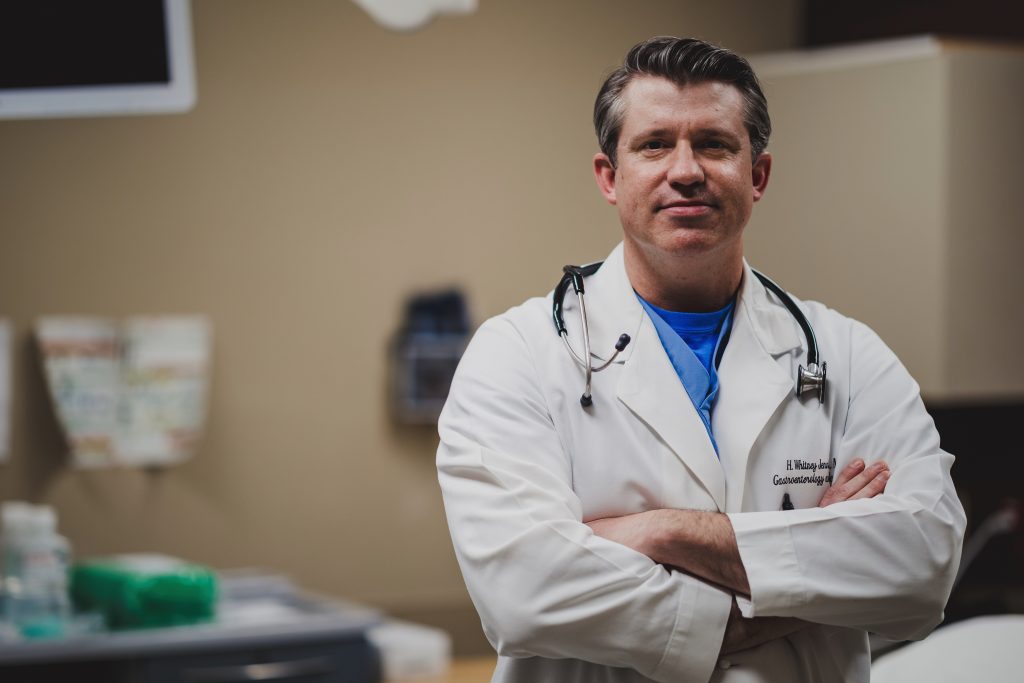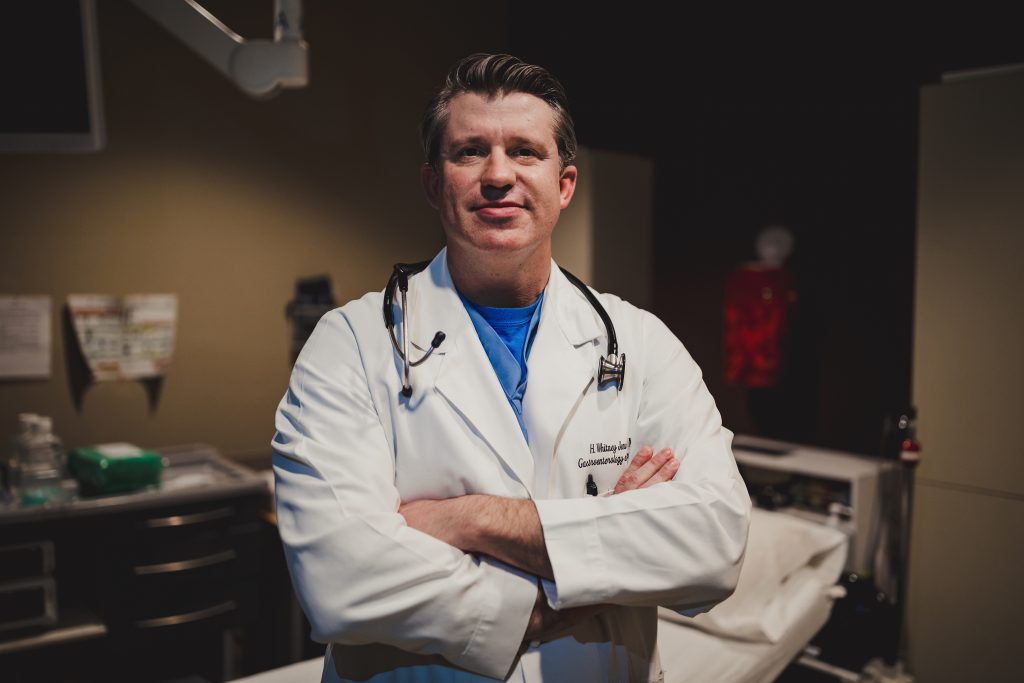
Photos Cameron Flaisch
March is Colorectal Cancer Awareness Month — but what does that mean? Colorectal cancer is cancer that develops in the colon, the rectum, or both, and it is the second most common cause of cancer-related death in America for men and women combined. Cancer in these areas of the body often develops as polyps, which are growths that could become cancerous without proper removal.
Raising awareness of such a common form of cancer is incredibly important, but it is especially important because colorectal cancer is both preventable and treatable if caught early. This is where the gastroenterology team at Harbin Clinic comes in. Gastroenterology includes all aspects of the body’s digestive system, which includes the colon and the rectum.
At Harbin Clinic, gastroenterology physicians use state-of-the-art, high-definition endoscopic equipment and minimally invasive techniques to examine and treat a broad range of digestive health disorders, including colorectal cancer and colon polyps. “With GI, we get a great opportunity to prevent a very common cancer, so that’s very rewarding,” Harbin gastroenterologist Dr. H. Whitney Jennings says. When it comes to preventing colorectal cancer, Jennings says it’s all about regular screenings.

“Colon cancer is the most preventable cancer because of our screening measures, which are focused around colonoscopy,” Jennings, one of five gastroenterology physicians at Harbin Clinic, explains. “Colonoscopy as a screening tool is very effective. I always tell my patients, ‘I don’t want to do a colonoscopy and find cancer.
I would much rather find a pre-cancerous condition or colon polyps.’ The goal is to find something that has the potential to turn into cancer so that we can remove it during the colonoscopy. The basis of colon cancer prevention with colonoscopy is identifying polyps and also removing them so they don’t have the ability to turn into cancer down the road.”
Colon cancer screenings are important for everyone, regardless of risk level or symptoms. As you age, your risk for colon cancer begins to increase. “The biggest risk for colon cancer that I tell my patients is having birthdays,” Jennings says. “Most patients at this time are recommended to start colon cancer screening at age 50; African Americans are recommended to start screening at age 45.
Unfortunately, we are seeing a trend of colon cancer and advanced colon polyps starting at an earlier age. Some of our guidelines are recommending to start screening at age 45 in all patients. We want to keep seeing birthdays, we just want to employ that preventative test that we have.”
Colonoscopies are especially important because colorectal cancer often does not present any symptoms. “Many patients will not have any symptoms at all in the setting of early cancer or advanced polyps,” Jennings says. “Some patients may notice some blood in the stool, they may have a change of bowel habits with some constipation or maybe a decrease in stool caliber, but many patients will not have any symptoms at all. That’s why it’s so important to keep up colonoscopies based on the recommendation that’s right for that patient.”
Though it is recommended that everyone start colon cancer screening at the suggested age, certain patients may be at a higher risk for developing polyps or colorectal cancer. “If patients have a family history of colon cancer, those patients will be at high risk,” Jennings explains. “Certain inflammatory bowel conditions like Crohn’s disease and ulcerative colitis will put patients at higher risk for colon cancer.”
Jennings says that it is common for patients to be nervous about their first colonoscopy, but that the benefits of the procedure should outweigh any concerns. “I don’t have many patients banging down my door to get that scheduled, but as a general rule, what I see after a colonoscopy is significant relief after having that preventative test,” he says. “I always tell my patients that you don’t want the anxiety about a good preventative test to prevent you from going forward with it.
We go through a lot of steps to make sure the patient has a comfortable experience. We have a great anesthesia team and a great nursing staff to take care of the patient. During the procedure itself, the patient is asleep and comfortable, hopefully dreaming of a nice vacation spot.”
Along with the recommended screenings, Jennings says, certain behaviors can help prevent polyps and colorectal cancer. Obesity and smoking can put patients at a higher risk, so avoiding smoking and maintaining an active lifestyle and healthy diet are great steps toward prevention. Regardless of risk level, patients can always turn to Harbin Clinic. “We have a great team at Harbin Clinic in Rome,” Jennings says. “Whether you’re at higher risk or average risk, we want to take care of all of those patients.”










